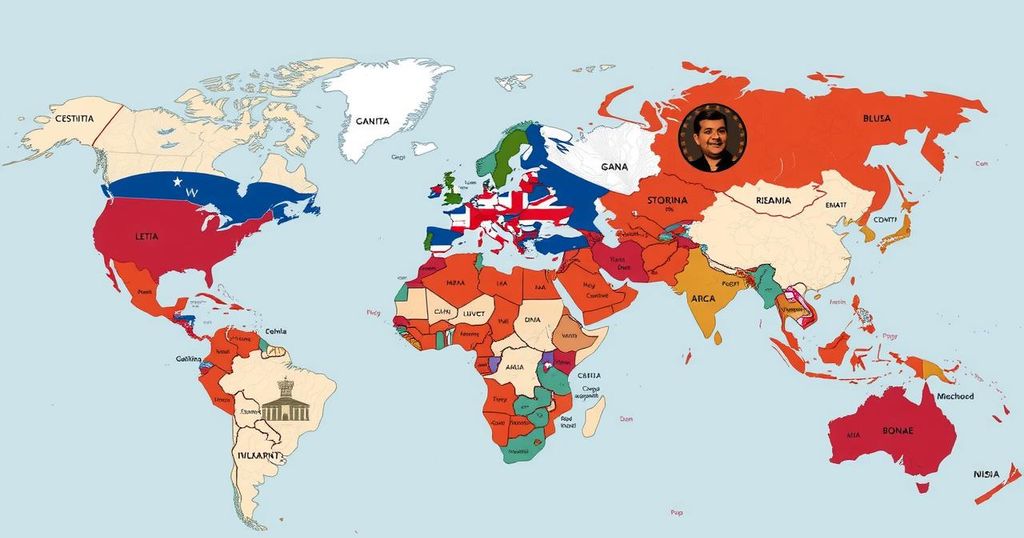2024 Elections: Voter Discontent and the Turbulent Quest for Democracy
The elections of 2024 across 70 countries reflected a global sentiment of dissatisfaction with incumbent governments, attributed to economic instability and the lingering effects of the COVID-19 pandemic. Significant shifts occurred as voters favored opposition and smaller parties, while concerns regarding political interference emerged. This turbulence indicates a potentially challenging future for democracy as elections loom in 2025.
In 2024, a significant wave of elections across approximately 70 countries saw widespread discontent with incumbents, reflecting a global yearning for change amid economic turmoil and political instability. Reports indicate that many governments were held to account for the dissatisfaction stemming from “electoral long COVID”—the lingering consequences of the pandemic on societal well-being—with high inflation and conflict further exacerbating public grievances.
In various instances, incumbent governments faced severe backlash, leading to unanticipated electoral outcomes. For instance, in India, Prime Minister Narendra Modi’s administration lost its parliamentary majority, requiring a coalition to govern. Similarly, traditional political parties in nations like South Africa and the United Kingdom experienced losses, indicative of a broader trend towards fragmentation in established political landscapes. Voters turned to smaller or opposition parties, signaling a departure from political norms.
The rise of right-wing populism marked a notable trend throughout this electoral season, with conservative parties gaining ground in places like the European Union and Austria. Concurrently, reports of political meddling, particularly from Russia, raised concerns over electoral integrity, illustrated by allegations surrounding elections in Romania and Moldova.
Meanwhile, incidents of political turmoil continued globally, such as in South Korea, where a bid for martial law garnered swift parliamentary rebuke; and Mozambique, where electoral disputes sparked widespread protests. The electoral turbulence exemplified a deeper crisis of faith in democratic institutions, exemplified by declining satisfaction with the efficacy of democracy, notwithstanding an overarching desire for democratic governance among the populace.
The future of democracy appears precarious as 2025 approaches, with numerous incumbents bracing for challenges. The foundational desire for effective governance persists, yet disillusionment with political systems abounds, prompting a reevaluation of democratic values and practices.
In 2024, the global political landscape underwent a significant transformation as voters across 70 nations voiced their discontent through the ballot box. This period, characterized by widespread economic instability and lingering effects from the COVID-19 pandemic, brought about a collective yearning among the electorate for change. The factors contributing to the overall dissatisfaction included rampant inflation, social inequalities, and geopolitical conflicts which collectively fueled a wave of electoral challenges to incumbent governments in various regions.
In summary, the 2024 elections revealed a profound voter disillusionment with incumbent governments around the world, spurred by a multitude of social and economic challenges. The rise of right-wing populism alongside allegations of electoral interference highlights the growing complexities within the global political arena. As several countries prepare for further electoral changes in 2025, the need for effective governance intertwined with public satisfaction remains crucial for the future of democracy.
Original Source: dailyjournal.net




Post Comment